Nature Knows and Psionic Success
God provides
New Progressive Attention AI from Voicera Mimics Human Brain to Radically Improve Automated Conversational Understanding at Work
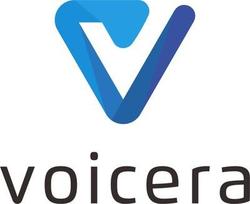
Dual System AI and NLP Platform Processes Conversational Data to Identify Importance and Relevance, Increases Accuracy in Transcription and Highlighting vs. Industry Benchmarks Menlo Park, CA August 27, 2018 — After months of research and development, Voicera is officially launching its foundational innovation for Progressive Attention AI that powers its in-meeting assistant, Eva. Progressive Attention AI accurately mimics human-level attentiveness by extracting the most valuable moments from a meeting and applying progressively higher computational focus on the moments to produce much more accurate outputs. This methodology performs twice as well as the most popular generic transcription engines currently on the market on real-world noisy meetings. The dual-system artificial intelligence approach, which uses both AI and natural language processing (NLP) systems, mimics human behavioral systems by maintaining two systems: one focused on rapid response, broad-facing, and is always on, while the second system is deeper, deliberate, highly accurate and engages only when necessary. "The human brain has always had the luxury of constantly scanning its environment while not wasting precious brain resources on every noise. Then when the brain senses something important, it allocates more attention to that particular input from the environment. Without that type of brain, the same person wouldn’t be capable of being both a sprinter and a chess player. To the brain this transition from muscle memory to deep thought is easy, but until now – AI has not worked this way." Said, Omar Tawakol, CEO of Voicera. "Most AI systems suffer from the ‘sophie’s choice’ of expensive time-consuming processing OR lower accuracy. Progressive Attention AI solves this, by allowing a fast analysis of the environment to identify relevant inputs followed by very deep and focused processing of important moments that can yield a much higher accuracy." This AI development is similar to the established models […]
Want to Buy Nootropics? What You Should Know First
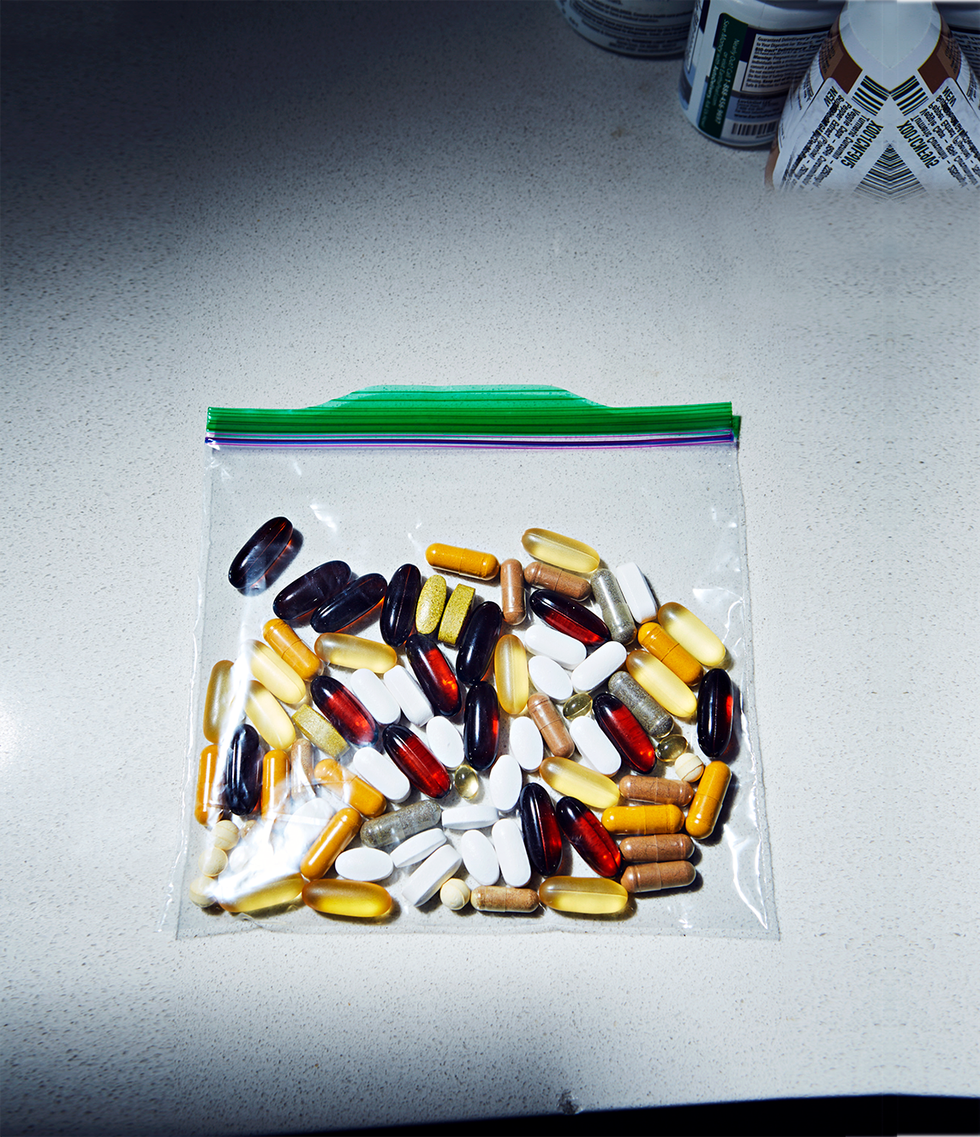
It’s a frosty Monday evening in March, but in the back of Idea Coffee, a dingy café near the Empire State Building, things are heating up. A group huddles around a small black box—the $160 ApeX Type A brain stimulator, with its retro-looking meter and dial and two electrodes. It’s supposed to bolster learning by delivering a mild electric current to the brain. The guy who’s been experimenting with it for a week notes that the only thing he’s noticed so far is a metallic taste in his mouth. “I hope I don’t fry my brain,” he half-jokes. But there’s a surprising lack of skepticism in the room. That’s because this is a weekly meetup of amateur biohackers. In fact, positivity is one of their ground rules. Members share experiences with ketogenic diets, biofeedback apps, sensory-deprivation tanks, and, lately, a class of smart drugs known as “ nootropics .” Their primary obsession is brain enhancement. The U. S. nootropics industry was valued at more than $1.3 billion in 2015 and is projected to reach $6 billion by 2024. This growth is due in part to slick marketing from biohacking “experts” such as Dave Asprey (founder of Bulletproof) and Josiah Zayner, Ph.D. (CEO of the Odin), who’ve built big social-media and podcast followings as well as customer bases. At the grassroots level, there are meetups across the country like the one at Idea Coffee, plus a vibrant online community. Forums including reddit.com/r/Nootropics/ have more than 140,000 subscribers discussing products with names like Orange Brainwash and GodMode. Nootropics are blends of ingredients touted as a low-risk way to enhance learning, memory, motivation, and even serenity. These ingredients range from herbs such as water hyssop ( Bacopa monnieri ) and arctic root to chemicals such as vinpocetine. And many people swear by […]
Can Rosemary Really Improve Your Memory?
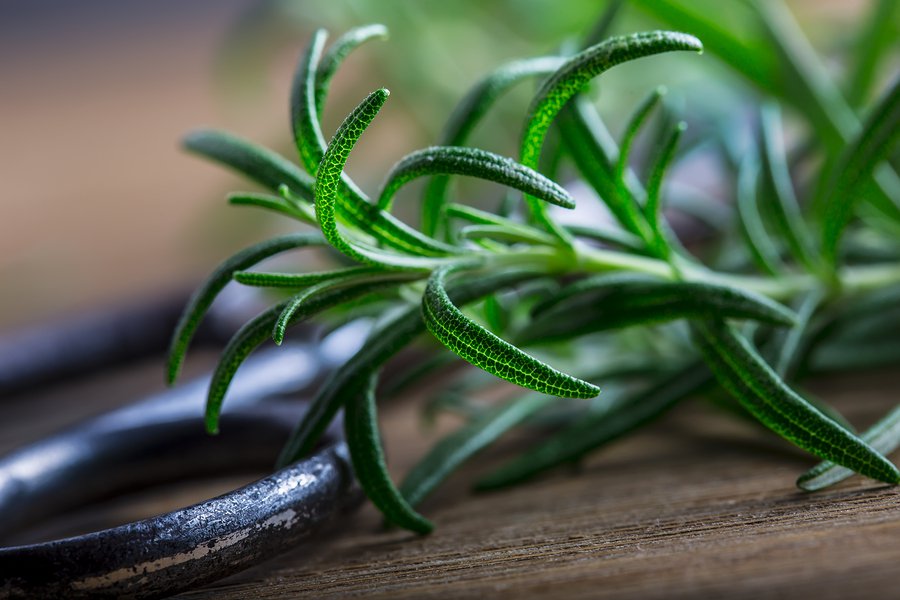
Photo credit: bigstock.com Nootropics, or “smart drugs” seem to be all the rage these days. Ever since the release of the 2011 film Limitless starring Bradley Cooper, people have been searching for a pharmacological solution to improving memory and cognitive performance. The good news is that you don’t necessarily have to experiment with risky and unproved drugs in order to experience these benefits. Nature may offer an herb that improves your memory in just a few minutes. What is in Rosemary? Rosemary is a type of herb native to the Mediterranean region. Its name comes from the Latin word Rosmarinus , meaning “dew of the sea.” Despite originating from a sunny and warm region, it thrives in colder climates as well and became a popular ingredient in the cooking traditions of many European countries. For many centuries however, people associate this herb with memory. In Shakespeare’s Ophelia , the eponymous character describes various herbs and their benefits: “There’s rosemary, that’s for remembrance …” (Hamlet, Act IV, Scene 5). It’s common in many cultures to use herbs for healing, mind-altering or health-improving purposes. Is There Any Scientific Data about Rosemary? Dr. Mark Ross, head of the Department of Psychology at the University of Northumbria, decided to conduct an experiment to see whether or not rosemary is a good option to use to influence the memory performance of volunteers exposed to it. Rosemary is most commonly ingested with food, but it has also been used in aromatherapy purposes, where the fumes are inhaled rather than digested. Dr. Ross and his team decided to use rosemary oil with a diffuser to observe its effects. The experiment involved 150 volunteers aged 65 or older. The participants stayed randomly in one of three rooms. The first room had rosemary oil scent, and the second […]
Nootropics Market To Reach Over USD 6 Bn By 2024

According to the latest report published by Credence Research, Inc. “ Nootropics Market – Growth, Future Prospects and Competitive Analysis, 2016-2024,” the global nootropics market was valued at USD 1,346.5 Mn in 2015, and is expected to reach USD 6,059.4 Mn by 2024, expanding at a CAGR of 17.9% from 2016 to 2024. Browse the full report Nootropics Market – Growth, Future Prospects and Competitive Analysis, 2016–2024 at https://www.credenceresearch.com/report/nootropics-market Sample Request: https://www.credenceresearch.com/sample-request/58257 Market Insights Nootropics, also known as cognitive enhancers are drugs and natural extracts that improve cognitive functions such as memory, creativity, motivation in healthy individuals. Nootropics have been available in the market for several decades and were made of ingredients such as multivitamins and caffeine – substances that the FDA has approved as dietary supplements and classified as GRAS (generally regarded as safe). At present, these products are being repackaged, repurposed and sold to academic and professional overachievers to augment their brain function. Companies operating in this space primarily succeed as lifestyle brands through smart marketing. However they can only be recognized as healthcare brands only after they develop products that secure regulatory approval thus establishing certified efficacy and safety to their products. Among the key applications of nootropics, memory enhancement currently holds the largest revenue share and it is anticipated that the segment will maintain its lead through the forecast period 2016-2024. Major factors favoring the demand for memory enhancing nootropics include growing awareness among students and executives about the promised benefits of nootropics, easy accessibility, and the booming market for supplements. The memory enhancing nootropic drugs enhance learning and memory effect, enhance the ability of learned behaviors to resist disruption, enhance the efficiency of your brain functions and protect the brain from chemical injuries. Memory enhancement segment for nootropics was valued at USD 391.6 Mn […]
18 Proven Ways to Stay Focused That Increase Productivity

Productivity doesn’t happen by accident. Accomplishing all the things you need and want to do requires forethought and planning, along with a continuous supply of motivation and focus. Do you ever think how amazing it would be to do everything you set out to do each day, so you could relax and know you’ve accomplished your daily goals? However, we often face a mountain of work and feel overwhelmed and unproductive. By day’s end, we throw in the towel, feeling defeated by our to-do list. Take charge of your time and energy, and learn what to focus on and what to let go. These 18 proven tools will help you stay focused and amp up your productivity so you can kill it every day. 1. Set daily goals. Hair Restoration Cost Most Healthy Drinks Get organized by dividing your day into goals, each with a clear purpose. Think of this as a detailed to-do list of prioritized daily tasks. Keeping a to-do list is the simplest and easiest proven tool to ensure you stay focused and increase your productivity. Set reasonable targets for each day. All you need to get organized is a pen and paper, or even just an app on your smartphone. 2. First things first. You only have so much time and energy, and chances are you’ll never have enough of both to accomplish everything (you think) you need to do every day. What you really need to do is focus on the most important tasks first. Not everything on your list is urgent. Take a moment to identify your Most Important Task (MIT). This is the most critical thing you must get done — get it off your plate first thing. By knocking out your biggest task, you’ll ensure that you’ll have a productive day […]
5 easy ways you can boost your energy levels
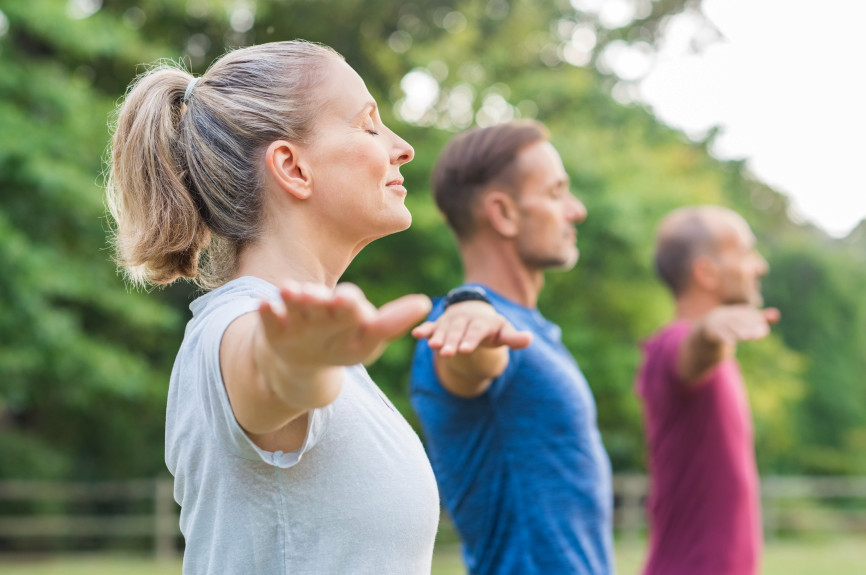
Group of senior people with closed eyes stretching arms at park. Happy mature people doing yoga exercise outdoor on a bright morning. Yoga class with woman and men doing breath exercising with stretched arms. Feeling more tired is a natural effect of aging – except when it isn’t. A number of factors can contribute to lowered energy, from diet and exercise to illnesses or medication. Although fatigue is common and can seem inevitable, steps can be taken to beat tiredness. Changes in activity levels, altering a diet or even a visit to the doctor could be the key to getting some energy back. Here are five ways to boost your energy levels. Eat high-energy foods Eat more fruits and vegetables for a diet that is high in nutrients and low in calories. Dark-colored fruits and vegetables like berries and broccoli are especially loaded with nutrients. Whole grains and low-fat dairy also provide energy-rich carbohydrates. Cold-water fish like salmon and halibut are rich in omega-3 fatty acids, which help memory, brain function and mood. These, in turn, help boost energy levels. Food can give a big boost to energy, so make sure to eat a healthy diet that will give you energy without packing on the extra pounds. Get moving The last thing you may want to do when you are low on energy is go for a quick jog. However, physical activity will actually help increase energy levels . You don’t need to engage in strenuous activity like running, jogging or lifting weights to improve your energy. Instead, start with walking, tai chi, yoga and other low-impact exercises. These activities can help boost energy levels and mood without risking injury. Stress can be a big contributor to low energy. Stress over finances, family life or a busy schedule can […]
Exercise is the most powerful lifestyle medicine that prevents the development of multiple chronic diseases
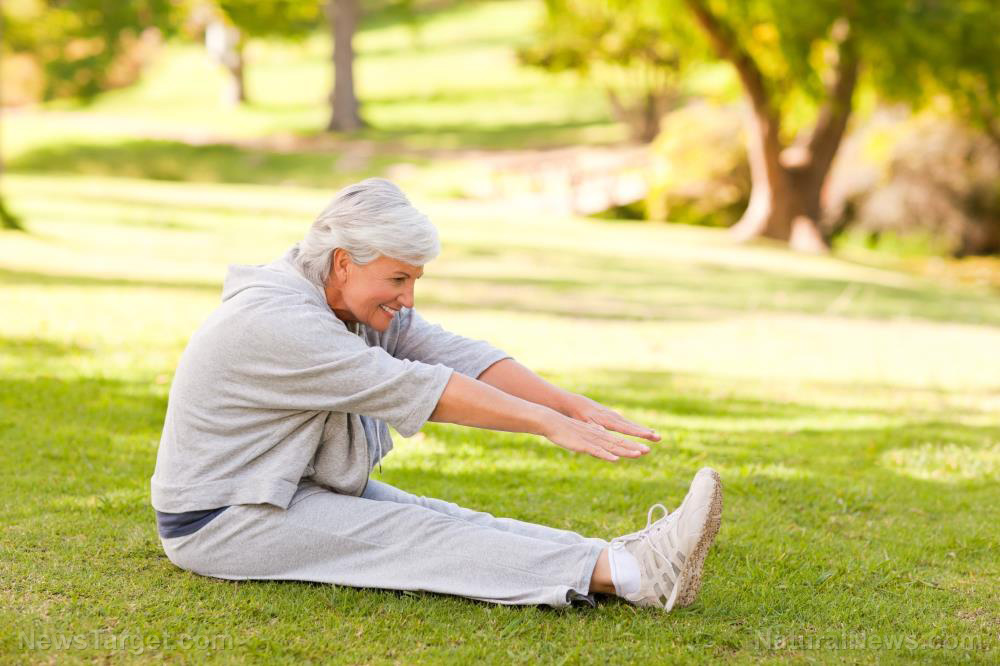
( Natural News ) A lot has been said about exercise. Studies have confirmed its many health benefits. One of the many aspects of exercise that needs constant emphasis is that it does more than just help build muscle; it also helps protect from various long-term degenerative conditions . One of the best examples of conditions that exercise protects against is Alzheimer’s disease . This neurodegenerative condition is just one of several diseases that are collectively classified as dementia. Although its signs usually manifest as a person approaches the senior years, factors like one’s prior diet and physical activity can have an impact on the risks of developing the disease. The ability of exercise to curb the risk of Alzheimer’s is well-documented. In one study, researchers followed up on 600 elderly women after six to eight years and found that those who walked the most had the least likelihood of experiencing cognitive decline. Another large study on older women confirmed these findings, indicating that higher levels of long-term regular exercise can not only mitigate cognitive decline but also improve overall cognitive function. According to the researchers, those who exercise regularly are seemingly three years younger than their actual age. But even among those who already have the disease, physical activities never stop offering brain-boosting benefits. In a study that involved patients diagnosed with early stages of Alzheimer’s, those who lived an active life performed better than their sedentary peers in cognitive tests. In fact, those who walked at least two hours every week demonstrated significantly improved scores in the said tests. Mother Nature’s micronutrient secret : Organic Broccoli Sprout Capsules now available, delivering 280mg of high-density nutrition, including the extraordinary "sulforaphane" and "glucosinolate" nutrients found only in cruciferous healing foods. Every lot laboratory tested. See availability here. But while […]
Democrats push to drop nationwide voting age to 16, because young people are so much easier to brainwash at government-run schools

( Natural News ) You can tell how desperate the Left is getting to win back power and how little confidence they have in a so-called “blue wave” coming this November — or at any time beyond the midterm elections — because their policy recommendations are getting nuttier. While Marxist Democrats push for new gun control legislation that would restrict long-gun sales the same as handgun sales, requiring buyers to be at least 21 years old (ostensibly because buying a gun is such a massive r esponsibility), the same lunatics want to give 16-year-old teenagers the right to vote. In fact, as reported by Guns.com , far-Left Democrats are actually citing “youth gun control advocacy” as a primary reason why they should be able to cast ballots in federal, state, and local elections: The mechanism for the proposed constitutional amendment, H.J.Res.138 , was introduced by U.S. Rep. Grace Meng earlier this month. The amendment would allow 16- and 17-year-olds to vote, the biggest change to the voting age since it was lowered from 21 to 18 in 1971. “Over the past year, we have seen a huge wave of inspirational and passionate activism by students from all across the country,” said Meng in a statement. “Students are demanding change on issues such as gun safety, climate change, and healthcare. They deserve to have their voices heard at the ballot box and to have a say in the change for which they’re vigorously advocating. It’s clear to me that they should be allowed to vote.” In a tweet, she added: “It shouldn’t take another 17 deaths for Congress to finally take action to prevent gun violence. We must be allowed to vote on common-sense legislation like the Gun Violence Research Act TODAY.” A moment of silence won’t ease the suffering […]
Harvard quack spreads fear about coconut oil, claims it’s “pure poison” and recommends eating LARD instead

( Natural News ) When it comes to the question of what’s healthy and what isn’t, the medical community seems completely unable to make up its collective mind. This is particularly noticeable when it comes to the issue of healthy fats. A hundred years ago, people happily spread their sandwiches with delicious, farm-fresh butter. Then the whole “butter is bad, but margarine is good” argument arose, and everybody switched to low fat, processed margarine made from vegetable oils. Then the so-called experts started telling us that low fat is no good, vegetable oil spreads are highly processed and unhealthy, and we should all go back to butter again. Most of us obediently switched back. The “science” regarding milk, eggs and other foods has swung like a seesaw over the years in much the same way, leaving health-conscious consumers totally unsure of what really is and is not the healthiest way to eat. The latest victim of this “medical confusion” is the humble coconut. Harvard T.H. Chan School of Public Health professor, Karin Michels, recently insisted at a talk delivered in Germany that coconut oil is “pure poison” and “one of the worst foods you can eat.” She claims that even lard – the unhealthy fat derived from the abdomens of pigs which was popular back in the 1950s – is a healthier choice than coconut oil. Pure poison or medicinal magic? The U.K.’s Daily Mail explains that coconut oil started gaining in popularity in the early 2000s, after two Columbia University studies found that the medium-chain triglycerides (MCTs) in this oil burn fat more quickly than other types of fat. But, while the fat-burning properties of this oil are impressive, they are certainly not the only reason for its massive leap in popularity. Coconut oil is pure medicinal magic, […]
6 Ways Exercise Can Improve Your Mental Health
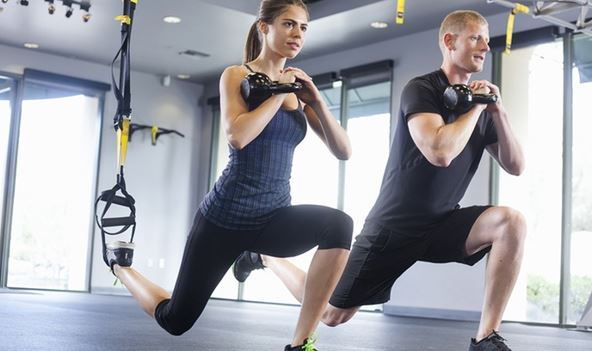
Exercise not only helps you to develop a leaner, stronger body, but it can also provide various mental health benefits that can potentially transform your outlook on life. Regardless of your age, gender, or fitness level, regular physical activity can make you feel healthier, happier and more confident each day. If you want to enjoy a greater quality of life, here are the six ways exercise can improve your mental health. 1. Reduce Your Stress Levels Stress relief is one of the most common mental health benefits of exercise. That is because physical activity will force your body to work up a sweat, which can remove tension from your muscles. What’s more, exercise can also boost the concentration of norepinephrine in your body, which is a chemical that can improve the brain’s stress response. 2. Increase Your Happiness If reducing your stress levels wasn’t enough, exercise can also make you feel happier. This is due to the body releasing endorphins (feel-good hormones), which can instantly improve your overall mood. Various studies have also found that exercise can ease symptoms for people living with clinical depression or anxiety. 3. Control Your Addiction Living with an addiction can be a daily battle with both the mind and body. Exercise can, however, be combined with a professional, intensive outpatient program , which could prevent a relapse. That’s because a workout will cause the brain to release dopamine, which is a reward chemical that can provide a natural feeling of euphoria. It can also distract a person from their addiction, deprioritize cravings, and can reboot their body clock so they can enjoy an improved sleeping pattern. 4. Prevent Cognitive Decline Cognitive decline is a natural part of aging, and it is caused by a loss of brain cells. Unfortunately, this may result in […]
30 days to a smarter and better brain: How to rapidly improve how you think

Everyone wants a better, and smarter brain to process information faster and have better memory recall. The most brilliant minds don’t have more brain power than the average person, they just use their brains more efficiently. Your brain’s health is a product of your daily habits. To optimize your brain, all you have to do is make slight adjustments to your routine. 30 days offer just enough time to realistically adopt new habits that can help you get smarter and think better, yet long enough to be challenging. In 30 days or less, you can adopt some of these habits to boost your brain power, improve your mental clarity and build a better brain. Start mind focus exercises Embrace meditation. There’s plenty of research that shows meditation increases the grey matter in your brain. Meditation can increase the thickness of regions that control attention and process sensory signals from the outside world. Yes, meditation makes your brain bigger (literally). Meditation is the art of silencing the mind. When the mind is silent, concentration is increased and we experience inner peace and more. But concentration requires a great amount of effort and time. In less time than it takes you to have lunch, you could be expanding your brain — literally. Just like building muscles, you can beneficially build the strength and even the size of your brain in the healthiest and most natural of ways. Meditation has been proven to benefit the brain. “Although the practice of meditation is associated with a sense of peacefulness and physical relaxation, practitioners have long claimed that meditation also provides cognitive and psychological benefits that persist throughout the day,” says study senior author Sara Lazar of the MGH Psychiatric Neuroimaging Research Program and a Harvard Medical School instructor in psychology. The problem is […]
New Progressive Attention AI from Voicera Mimics Human Brain to Radically Improve Automated Conversational Understanding at Work
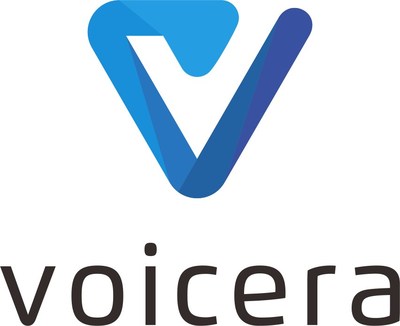
MENLO PARK, Calif., Aug. 27, 2018 /PRNewswire/ — After months of research and development, Voicera is officially launching its foundational innovation for Progressive Attention AI that powers its in-meeting assistant, Eva. Progressive Attention AI accurately mimics human-level attentiveness by extracting the most valuable moments from a meeting and applying progressively higher computational focus on the moments to produce much more accurate outputs. This methodology performs twice as well as the most popular generic transcription engines currently on the market on real-world noisy meetings. The dual-system artificial intelligence approach, which uses both AI and natural language processing (NLP) systems, mimics human behavioral systems by maintaining two systems: one focused on rapid response, broad-facing, and is always on, while the second system is deeper, deliberate, highly accurate and engages only when necessary. "The human brain has always had the luxury of constantly scanning its environment while not wasting precious brain resources on every noise. Then when the brain senses something important, it allocates more attention to that particular input from the environment. Without that type of brain, the same person wouldn’t be capable of being both a sprinter and a chess player. To the brain this transition from muscle memory to deep thought is easy, but until now – AI has not worked this way," said Omar Tawakol, CEO of Voicera. "Most AI systems suffer from the ‘sophie’s choice’ of expensive time-consuming processing OR lower accuracy. Progressive Attention AI solves this, by allowing a fast analysis of the environment to identify relevant inputs followed by very deep and focused processing of important moments that can yield a much higher accuracy." This AI development is similar to the established models of the human brain outlined as System 1 and System 2 in the work which led to the Nobel Prize in Behavioral […]
Future dentists could choose to simply regenerate teeth instead of filling cavities

( Natural News ) Wouldn’t it be great to be able to regrow your teeth in ways that are similar to your hair and nails? Of course it would, but unfortunately, human bodies just aren’t built like that. Last year, however, a team of researchers led by Paul Sharpe, a bioengineer at King’s College London , managed to discover a method that allows teeth to regrow themselves , making the use of synthetic fillers to patch them up completely unnecessary. According to a report on the study, scientists might eventually view it as one of the most important advances in the field of dentistry if it ever becomes widespread and standardized. The basis of the method discovered by the researchers is none other than the fact that teeth already have the ability to heal themselves, albeit only slightly. It’s said that teeth can function just like human skin in some ways, able to repair minor damage all the time by themselves, without the need for any forms of treatment. However, the problem is that major damage or injury in teeth make it largely impossible for any self-repair mechanisms to kick in, and that’s why most people get cavities instead. In order to fix this, Sharpe and his team thought that it could be useful to mobilize stem cells in the dental pulp and boost the natural healing abilities of teeth. Their work was built on top of earlier research, where it was demonstrated that the Wnt signaling pathway – an evolutionarily conserved pathway that regulates certain aspects of cell fate determination, cell migration, and cell polarity, among other things – was essential both for tissue repair and stem cell development in other parts of the body like the skin, brain, and intestines. 100% organic essential oil sets now available […]
Relieve pain by losing weight: Research shows small reductions ease discomfort throughout the body, not just in weight-bearing joints

( Natural News ) A study found that one way to relieve pain is to lose weight . The study, published in the Journal of Pain , revealed that even a small amount of weight loss eases pain all over the body, and not just the weight-bearing joints in obese patients. A team of researchers from the University of Michigan wanted to identify how obese patients experienced overall pain and chronic conditions, such as fatigue and depression. Thus, they carried out a study on 123 obese patients with these conditions and identified how weight loss could relieve their pain. People who suffer from obesity also tend to suffer from pain in the knees, hips, and lower back – all of the parts that are weight-bearing. In the study, the researchers administered a low-calorie diet to the participants to help them lose weight. In addition, they guided them on how to steadily increase their physical activity. Moreover, the participants answered a survey regarding their symptoms before and after the weight loss intervention that lasted for 12 weeks. “The focus in the program is on calorie restriction and long-term weight loss, although all patients are encouraged to get more physically active for the other health benefits that exercise provides,” said Amy Rothberg of the University of Michigan . The findings of the study showed that even a 10 percent loss of weight helped obese patients lessen discomfort not only in the joints, but also in the abdomen, arm, chest, and jaw. In addition, participants who lost at least 10 percent of their weight reported better mental health, enhanced cognition, and more energy in comparison to those who did not lose weight. Mother Nature’s micronutrient secret : Organic Broccoli Sprout Capsules now available, delivering 280mg of high-density nutrition, including the extraordinary "sulforaphane" […]
Best Herbs You Can Use to Improve Your Memory and Boost Cognitive Function

Shutterstock.com Are you constantly forgetting things? Do you find information hard to register? Do you feel like you can’t remember things because your brain is stuck in overdrive? It may be time to give your brain a mental boost. Although there is a long list of medications you can take that claim they can help improve cognitive function, back in ancient times, our ancestors used the benefits of herbs to help with a variety of ailments — what’s even better is that they never complained of side effects. It’s time we go back to our roots and do just as they did by using herbs to help boost our memory and improve brain health. Discover the following herbs that can help raise productivity, improve focus and enhance overall brain power. Gotu Kola Shutterstock.com Derived from South East Aisa, India and Australia, this herb was traditionally used as a tonic to balance overall cognitive brain function. Gotu Kola has the ability to improve blood circulation and support memory function. This herb is also an adaptogen that can help your body adapt to stress more efficiently, which helps with mental clarity. Vacha Shutterstock.com Vacha is believed to help with the detoxification of brain tissue. People who have used this plant reported feeling stimulating effects that can help boost the moods of individuals with sluggish thinking. Vacha has been used to treat nervous system disorders and further assist with focus, mental concentration and clear thinking. Rosemary Shutterstock.com History suggests that this herb was worn as a reef by students to help them remember what they’ve learned during class. Rosemary is particularly used as an essential oil in aromatherapy to help improve memory retention, boost efficiency and proficiency in mental tasks. Rhodiola Shutterstock.com This ancient root has been used for centuries for its […]
From superfood to superspice: Latest health trends focus on the benefits of spices like cumin, turmeric, cayenne and cinnamon
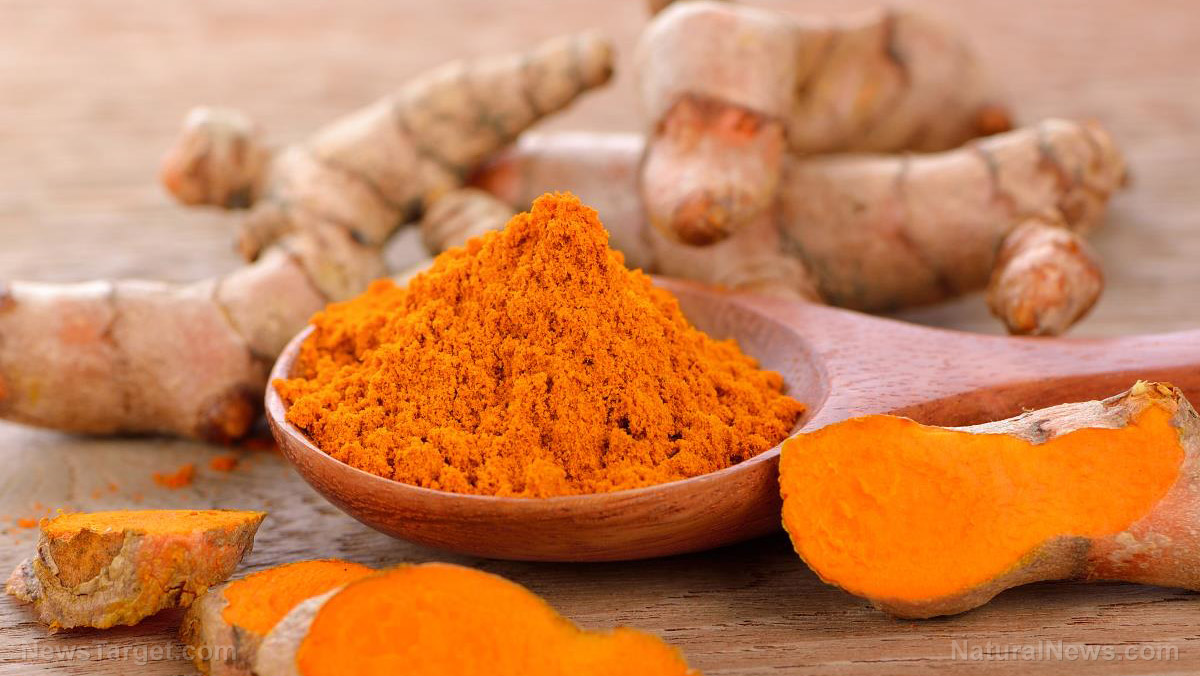
( Natural News ) The next best thing in food may very well be your spice rack. No longer just used for seasoning, spices are being recognized for their therapeutic value. In an article that appeared in the Daily Mail , six spices have been dubbed as the “in” food for 2018, with scientific literature to back them up: Turmeric – Experts classify turmeric as a thermogenic (heat-creating) spice. With its early usage dating back to 4,000 years in ancient India, turmeric has long been used as medicine in South Asia. These days, the root dubbed as the “golden spice,” has gained recognition for its therapeutic properties not only in Asia but in other parts of the world as well. As an herbal medicine , turmeric has been used to treat various conditions such as rheumatoid arthritis, conjunctivitis, skin cancer, smallpox, chicken pox, and liver ailments. The spice also possesses anti-inflammatory, choleretic (bile-increasing), anti-microbial, and carminative (flatulence-relieving) properties. Moreover, curcumin, the active ingredient in turmeric, has been shown to have active pharmacological properties. Cinnamon – Multiple studies have shown the benefits that cinnamon bark has in lowering blood sugar levels for people with Type 2 diabetes. One of the most popular spices in the work, the bark of various cinnamon trees has been used in traditional and modern medicine . Aside from lowering blood sugar levels, cinnamon bark contains procyanidins and catechins, which are both rich in antioxidants. Moreover, cinnamon has been found to have anti-inflammatory, antimicrobial, anti-cancer, lipid-lowering (cholesterol-reducing), and cardiovascular disease lowering properties. Studies have also found that cinnamophilin, a derivative of the cinnamon bark, is known to prevent ischemia in the brain by protecting the blood vessels from inflammation. Chili – Also a spice that has a thermogenic effect, chili is known to help increase metabolism […]
These are the different types of naps – learn which one to take depending on your health needs

( Natural News ) Napping can boost your mental and physical performance – but it should be done correctly to avoid pitfalls. Here are nine types of nap you can choose from to suit your needs: The CEO nap – The CEO nap is for people who want to boost their daily energy, focus, and mental performance. This is a 25-minute power nap in the mid-afternoon or between 1-3 p.m. The Nap-a-Latte – For people who are low in energy and need a quick lift, this nap is for you. It combines a moderate amount of caffeine within a short period of rest to provide both benefits at once. To do this, drink a 6-8 oz. cup of coffee quickly. Then, snooze for 20 minutes. You will wake up just in time for the caffeine’s stimulant effects to kick in. This nap will also relieve some of the sleep pressure that has been making you feel tired. However, this nap should only be done one to two times a week. If you constantly feel tired and sleepy during the day, it is time to reconsider your sleep routine and sleep hygiene habits. The New Mom nap – For parents, especially moms, who take care of newborns and young children and do not sleep enough through the night, this nap is for you. The technique is to take a nap when your child is sleeping. In this way, you will have more energy, patience, and focus on your child and other parts of your life. The Sports nap – The Sports nap is for people who need a boost in their sports performance. With the right timing, this short, 15- to 20-minute nap will immediately boost both your physical and mental performance for a period of time, without any sleep […]
Carotenoids are also good for your hearing: Study

( Natural News ) You probably know by now that carotenoids are good for your eyes. But have you heard about them boosting your cognition and your hearing as well? Experts are suggesting that carotenoids like lutein are able to sharpen a person’s brain and hearing through the same processes that lets them enhance one’s eyesight, an article on Nutra Ingredients USA stated. The intriguing proposal first came up at the recent Nutrition 2018 conference. During a carotenoid-centric symposium, University of Georgia (UGA) professor Dr. Billy Hammond made his case for lutein’s beneficial effect on the hearing of humans. Many studies have shown that carotenoids interact with the human eyes. In contrast, the body of scientific literature that covers their connection with the human ears is much more sparse. Hammond is very familiar with lutein’s effects on the brain. He is the author of a 2014 study that showed the optical density of macular pigments are linked to general cognition in people who suffer from mild cognitive impairment (MCI). The macula are circular areas in the center of the retina of human eyes. They are responsible for visual acuity. They also contain plenty of pigments like lutein and zeaxanthin, which can be analyzed to measure the amounts of each carotenoid in the body. Published in the journal Neurobiology of Aging , the 2014 study reported that low levels of these two carotenoids are linked to lower cognition in participants with MCI. Meanwhile, macular pigment optical density only affected visual-spational and constructional abilities in healthier adults. (Related: Lycopene is found in a variety of fruits, offering an array of antioxidant carotenoid benefits .) Mother Nature’s micronutrient secret : Organic Broccoli Sprout Capsules now available, delivering 280mg of high-density nutrition, including the extraordinary "sulforaphane" and "glucosinolate" nutrients found only in cruciferous […]
Koios Beverage CEO: The Nootropic Market is Expected to Grow by 600 Percent within 10 Years

Koios Beverage CEO Chris Miller provides an outline of the company’s strategy and its proprietary products. Koios Beverage (CSE: KBEV ,OTCMKTS:SNOVF) CEO Chris Miller believes that there is vast opportunity in the nootropics market. In the interview below, he defines nootropics, outlines their value and discusses how Koios uses them as part of its supplements and beverage formulas as a healthy alternative to caffeine. Miller also addresses Koios’ clinical trial, which is being conducted to study the efficacy of the company’s products, the recent addition of a powder-based supplement to its product line and the rebranding of its beverages. Below is a transcript of our interview with Koios Beverage CEO Chris Miller. It has been edited for clarity and brevity. Investing News Network: Please give our investor audience an overview of Koios and its proprietary nootropic products. Koios Beverage CEO Chris Miller: I started Koios five years ago with the mission of using our proprietary products to help people get healthier. It all began when I started looking for a natural alternative to Adderall for enhancing brain function and thus treating my ADHD. Once I found a formula that I liked, I took it to the top labs, doctors and biochemists in the country and worked with them to develop a nootropics-based supplement that was widely distributed by Max Muscle and Europa Sports. We’d essentially pioneered a new technology that didn’t overstimulate the brain and contained low levels of caffeine. Soon after we launched distribution, we realized there was a huge demand in the market for nootropics. If you ask people whether they would take a supplement to enhance their brain function at work, increase their productivity and thus make more money, there is a high likelihood that they will say yes. To help meet this demand, we followed […]
7 ways to eat to boost your brainpower, without taking supplements
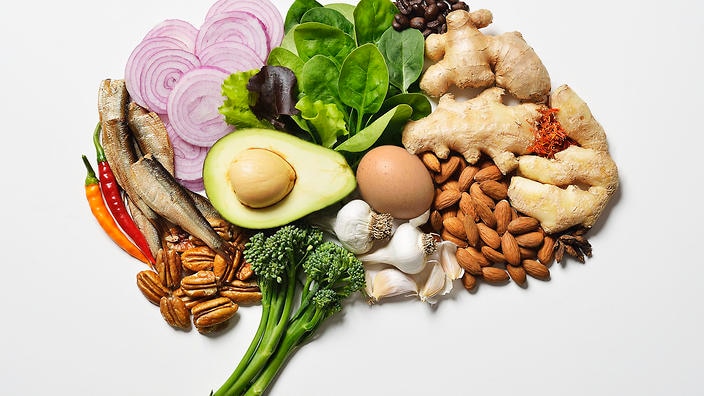
In our recent pursuit to become smarter, faster, a new pharmaceutical market has been born for a type of supplement called ‘nootropics’. Also known as ‘smart drugs’, nootropic supplements promise to enhance your cognition function and supercharge your memory. Take a nootropic pill regularly, marketing claims suggest, and you’ll be able to learn new things, feel more motivated, have better memory recall and boosted concentration rates. Yet the sale of nootropic supplements raises one vital question: do we really need to be taking pills to boost our daily brain performance? Melanie McGrice, spokesperson for the Dietitians Association of Australia , tells SBS that we don’t need to turn to pills for brainpower. We can boost our memory, concentration and mental performance by eating the right foods: nootropic foods. “Of course, there are always exceptions to the rule: people who are unable to meet their nutritional requirements because they’ve had gastrointestinal surgery, have a food allergy or intolerance, a specific illness or are pregnant,” says McGrice, an Accredited Practising Dietitian. “But, for the general population, I believe food should be our main source of our nutritional needs, for all situations including cognitive performance.” Here are nootropic foods – ‘smart foods’ – that McGrice recommends we eat to maximise our brain’s performance. 1. Caffeine You’ve probably already experienced how a cup of coffee or tea has boosted your mental alertness. But research also suggests that caffeine may be able to improve various memory types. A study conducted by researchers at John Hopkins University shows that caffeine enhances certain memories for at least 24 hours after it is consumed. The research, published by the journal Nature Neuroscience in 2014 , concluded that caffeine can enhances our brain’s ability to consolidate long-term memories. Another study also found caffeine may be able to improve […]
